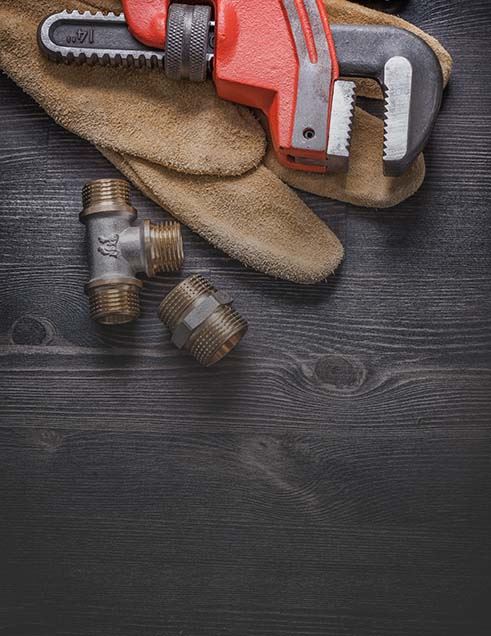A Checklist of What To Do When A Loved One Dies
The loss that family members and friends feel when a loved one dies is often overwhelming. When someone you love dies, the added stress of handling their personal and legal affairs can be very difficult, especially when you do not know where to start.
Many people call our office a day or two after the death of a loved one looking for assistance and guidance to begin the process of settling their family member’s affairs. To assist in this task, we have developed this checklist to help guide friends and family members in the first few weeks after a loved one has died.
- Obtain Pronouncement of Death – In Florida, only an attending physician, medical examiner or coroner can make medical determinations of death. If your loved one dies in a hospital or nursing home, the facility will handle the pronouncement of death. But if your loved one dies at home, you can call your funeral director or the county coroner’s office to obtain the pronouncement of death.
- Inform Other Family Members and Friends of Death – Call close family members and friends, church leaders, co-workers or employers, send text messages, post death on social media to efficiently notify the decedent’s community of his or her death. Write an obituary and contact the newspaper for publication.
- Make Funeral, Burial or Cremation Arrangements – Attempt to identify if your loved one had a funeral or burial plan in place. Otherwise, contact funeral homes and obtain prices for various services. Consult with other family members regarding type and scale of services. If the decedent was in the military, contact the local Veteran’s Administration for possible options for military service. Consult with family members and friends for service as pallbearers, prepare eulogies, and to attend service.
- Obtain Certified Copies of Death Certificate - You will need a certified copy of the death certificate to close bank and brokerage accounts, to file insurance claims and to register the death with government agencies, begin probate proceedings and for many other tasks. Therefore, you should order at least 10 certified copies of the death certificate. The funeral home can order copies for you, or you can order them from the local vital statistics office.
- Locate the Will and Other Legal Documents of the Decedent – We advise our clients to inform their close family members of the location of their will and any other legal documents. In Florida, the custodian of the will is required to file the original will with the Clerk of Court within 10 days of the custodian’s receipt of information that the testator has died. It is important to identify the testator’s choice of Personal Representative (often referred to as Executor) as soon as possible because that person will be responsible for the administration of the decedent’s estate.
-
Meet with a Probate Attorney - The probate attorney will represent the Personal Representative to assist
the PR in performing his or her duties. We recommend that the Personal
Representative meet with a probate attorney within the first few weeks
after the death of a loved one to obtain an understanding of the probate
process, which typically lessens the stress caused by “fear of the
unknown”. While this initial meeting with the probate attorney will
not necessarily establish the entire probate plan, the probate attorney
will be able to provide information to provide piece of mind to the Personal
Representative.
At The Edwards Law Firm, PL, we offer a 1 hour consultation to review the following issues:- Whether a probate proceeding is required and if so, approximate time it will take to administer estate.
- How to handle jointly-owned assets.
- How to handle any property owned by a trust.
- How to account for expenses incurred after death.
- When an estate tax or inheritance tax due.
- How and when to distribute assets to beneficiaries.
-
Track Down the Assets of the Decedent – Secure the decedent’s purse, wallet and cell phone. Identify
whether the decedent had a safe deposit box. Look in the decedent’s
home or office for any documents that identify assets owned by the decedent:
- Real Estate
- Bank Statements and Brokerage Account Statements
- Retirement Account Statements – IRAs, 401(k)s, Pension Plans, etc.
- Life Insurance Policies
- Annuity Contracts
- Car Titles
- Business Interests – corporations, limited liability companies (LLCs) or other investment vehicles
-
Make a List of all Bills and any Creditors of the Decedent – One of the duties of the Personal Representative is to notify the
decedent’s creditors. Look in the decedent’s home or office
or in the decedent’s mail for any documents evidencing regular monthly
bill payments.
- Mortgages
- Credit Card Statements
- Car Loans
- Notify the Decedent’s Bank and other Entities of Death – Once you have identified all of the banks and brokerage companies holding the decedent’s accounts, you will need to provide an original death certificate to each such institution. If the account is a joint account, the institution will remove the decedent’s name from the account. If the account is a POD (“payable on death”) or TOD (“transfer on death”) account, the bank will either provide a check to the beneficiary or open an account for the beneficiary upon presentation of the proper identification.
-
Special Considerations related to Decedent’s Real Property – Often, the decedent owned a home or other real property in their
individual name. Probate will be necessary to transfer the property to
the beneficiaries. During the probate process, all expenses related to
the property must be paid to avoid a lien or foreclosure action.
- Mortgages
- Utilities
- Homeowners’ Association or Condominium Association Dues
- Real Estate Taxes
- Homeowner’s Insurance
If there are insufficient liquid assets in the estate to pay these continuing expenses, the Personal Representative can pay these expenses with personal funds and seek reimbursement in the estate.
-
Miscellaneous Consideration
- Social Security and any other federal agency. The decedent may be eligible for a death benefit. Any social security payments received after the date of death may need to be returned.
- Health insurance provider. Health insurance premiums will stop as of the date of death. If any premium is pre-paid, the estate will often be entitled to a refund.
- United States Postal Service (USPS). Arrange for the forwarding of the decedent’s mail to the Personal Representative.
- Florida Department of Motor Vehicles. Notify the DMV of the deceased death to cancel their driver’s license.
- Subscriptions and services such as cable and internet providers if nobody will be living in the decedent’s home.
- Notify each credit card company of decedent’s death to avoid fraud or unauthorized charges.
- Notify credit bureaus (Equifax, Experian and TransUnion) of decedent’s death to prevent identity theft.
We are here to help you through this difficult time. Please call our office at (941) 363-0110 or contact us online to schedule a time to discuss whether probate will be necessary to administer your loved one’s assets.


-
“We chose Sherry because of her professional experience in real estate.”
- James L. -
“I will definitely recommend her to any of my friends or customers.”
- Shelley -
“She promptly contacted the other party on our behalf and literally within 10 days, we had all of our money refunded back to us.”
- Dave

Our Clients Are Talking
See What They Have to Say!-
“I will definitely recommend her to any of my friends or customers.”
- Shelley -
“The Edwards law firm recently helped me through a lengthy family real estate transaction.”
- Stephen -
“I would absolutely recommend Sherry and team to anyone looking for any kind of real estate help!”
- Michael
Why Choose The Edwards Law Firm, PL
-
Over 28 Years of Experience
-
Sheryl A. Edwards is a Board Certified Specialist in Real Estate Law
-
Achieve Client Objectives in a Timely Manner
-
Selected for Super Lawyers 11 Times
-
Personalized Attention & Case Strategy
-
Your Goals Always Come First



